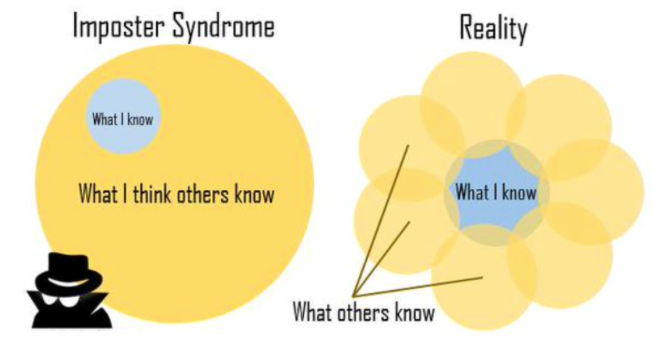Gina: Hi everyone, welcome to the Harmony Foundation podcast series, and I’m pleased today to be joined with Dr. Michael Zona, who is a forensic psychiatrist out of Boulder, Colorado.
Welcome, Dr. Zona. Continue reading “Podcast: Dr. Michael Zona – Forensic Psychiatrist”
Author: Christy Weeks
Podcast: Anchored Tides Recovery
Gina: Hi everyone, welcome to the Harmony Foundation Podcast Series, and it’s my pleasure today to be joined with Becca Edge, co-founder of Anchored Tides Recovery, and Kelsey Huberty, clinical director. It’s nice to have you both here. Continue reading “Podcast: Anchored Tides Recovery”
Exploring the Enneagram: Relationship Reinforcementng by Khara Croswaite-Brindle

I can’t handle it when others are upset. I throw myself into work to avoid emotions. I want to be left alone. No one understands me. I want everyone around me to be happy. Can you relate to any of these statements when it comes to how you operate in your world? Does this describe your reactions when relating to others? If so, there is good news! The Enneagram is a personality test that not only looks at your strengths and weaknesses, but also allows insight into relationships with others in order to strengthen compassion and connection.
Personality Test Popularity
For many of us, we’ve been exposed to personality tests in the past, whether it was part of high school psychology class, a component of starting a new job, or a viral quiz on social media. Myers-Briggs Type Indicator (MBTI) was the go-to personality test for several decades starting in the 1940s when exploring a person’s extraversion, intuition, and decision-making skills. The Enneagram has been around almost as long, making an introduction in America in the 1950s. Praised as a tool for deeper awareness, self-understanding, and self-discovery, The Enneagram classifies personality into 9 categories or types, identified below by The Enneagram Institute as:
- Type 1: The Reformer
- Type 2: The Helper
- Type 3: The Achiever
- Type 4: The Individualist
- Type 5: The Investigator
- Type 6: The Loyalist
- Type 7: The Enthusiast
- Type 8: The Challenger
- Type 9: The Peacemaker
The Enneagram also claims that a person’s designation as one of the nine types is solidified in childhood based on traumatic or impactful experiences that reinforce behaviors that support feelings of safety and security. For example, someone who tests at Type 2, The Helper, may have a core belief that “I am good and ok if I help others.” The authors of several Enneagram books, Don Richard Riso and Russ Hudson further describe each person’s capacity to equally develop into any one type, however the type that ultimately defines us is reinforced by our environment at a very young age. Another example that can highlight this concept is the child who is praised for every positive performance or good grade, allowing them to feel pride when sharing their accomplishments at a young age. In continuing to seek that valuable praise to feel positively about themselves, they might find themselves pursuing various accomplishments throughout their life in a series of patterns of achievement, categorizing them as Personality Type 3, The Achiever.
Put it to the Test
So now that your curiosity is peaked, why not put it to the test and see for yourself? You might have an idea of your type just from the names above, however there are several options that can clarify your results. The Enneagram Institute (enneagraminsitute.com) has an online test that can define your type and any other connections to other types based on your responses to a series of questions. A faster option can also be found in a free App called EnneaApp, that can allow you to explore your type and read more about what the results mean in shortened form, ideal for those who want family members and loved ones to also test and identify their personality types. The Enneagram has risen in popularity due to its use in various contexts to help people better understand themselves and others.
- Premarital Counseling
- Individual and Family Therapy
- Workplace Efficacy & Human Resources
As you can imagine, clarity about your type and The Enneagram type of others around you can help you rise to your fullest potential, including strategizing on projects in the workplace or connecting at a deeper level interpersonally. Therapists value the Enneagram due to its ability to start conversations about similarities and differences between people, as well as its ability to provide opportunities for growth and self-discovery.
Discovering Depth
Self-discovery with the Enneagram reflects the effort you put in the results and your ability to have an open mind. Designation of your personality type includes implications for balance and wellness by looking at the positive characteristics (which will please you) and the negative characteristics (which will make you want to hide). In other words, you will have positive traits that you feel fit your personality very well, and negative traits you will want to reject due to the painful accuracy of things you want to keep hidden from others due to embarrassment or shame.
Allow me to illustrate. If you are found to be a Type 8, The Challenger, you, like all the types, have both positive and negative characteristics. Some of your positive characteristics include having a powerful vision of your future, being vocal about your goals to get results, getting others cooperation in those goals, and being described as passionate. So far so good right? You sound like a force to be reckoned with. On the other hand, your negative traits include speaking over others, a ‘my way or the highway’ mentality when challenged, being described as bossy and overbearing, and being intimidating when expressing anger. As you can imagine, balance between positive and negative characteristics is important in exploring shifts to support connection with others both personally and professionally as well as workplace success.
Enneagram Enhanced
The Enneagram can go much deeper into passions, difficulties, relationships, team work, and more. Just look for trainings in your community and online to move into further discovery after you identify your type or the type of those you value. By beginning your journey into The Enneagram starting with your own reflection, you will uncover unlimited possibilities regarding how to successfully connect with strengths in yourself and with others!
“The point of it isn’t to just be a type, but to use the awareness of our type as a kind of entry into a more full-bodied humanity and a greater and greater capacity to embody and flow with all the different qualities of our humanness.” ~Russ Hudson
Khara Croswaite Brindle, MA, LPC, ACS, is the owner of Catalyst Counseling, PLLC and is a Licensed Professional Counselor in the Lowry Neighborhood of Denver, Colorado. She received her Masters Degree in Counseling Psychology from the University of Denver with a focus on community based mental health. Khara has experience working with at-risk youth and families, including collaboration with detention, probation, and the Department of Human Services. Khara enjoys working with young adults experiencing anxiety, depression, trauma, relational conflict, self-esteem challenges, and life transitions.
For More Information, Please visit:
CATALYST COUNSELING, PLLC
Podcast Series: Denver Recovery Center
Gina: Hey, Jason. Nice to have you here. Continue reading “Podcast Series: Denver Recovery Center”
Upper Limit Problem: Smashing through our self-imposed glass ceiling by Khara Croswaite Brindle

Remember when we explored if we’d quit something before it could go wrong? How you’ve ended a relationship before you could get hurt? We identified these as examples of self-sabotage, which can strike at any moment when we feel that things are gaining momentum in a positive way. But what happens when you achieve the success you’ve always wanted and now, instead of joy, you feel doubt and dread, fearing it is too good to last? Because of this fear, perhaps you desire to remain safe in your career trajectory, creating your own glass ceiling because it pays the bills and supports stability. You choose comfort rather than taking risks that would allow you to reach your fullest potential. Gay Hendricks calls putting on the breaks when our success has exceeded what we thought it could as The Upper Limit Problem, described in detail in his book “The Big Leap.”
Signs you have an Upper Limit Problem
It’s understandable that we struggle with success in thinking it’s too good to be true. Awareness of our reactions to success and the resulting negative thoughts and unconscious self-sabotaging behaviors can be considered a first step in recognizing the problem and identifying viable solutions! Here are some signs that you might be experiencing an Upper Limit Problem:
- You avoid taking risks
- You can’t slow down
- You can’t enjoy your successes due to fear and doubt
- You prevent change in wanting stability
- You love your comfort zone
- You feel uncomfortable with too many successes at once
- You get stressed and sick when experiencing rapid growth
Smashing through your Upper Limit Problem
For many, illness in response to stressors or fear of success in a big part of their Upper Limit Problem. So now that you know what you are experiencing, what can you do about it? Here are some ideas that might help:
- Identify positive affirmations such as “I’m right where I should be.” “I’ve worked hard for this success.” “I deserve good things.”
- Engage your supports. Talk to others you trust about the stress you are feeling in the face of your achievements.
- Practice mindfulness. Engage in mindfulness and meditation practices to reinforce positive vibes and refocus.
- Slow down. Take breaks for self-care and rest up to prevent illness.
By recognizing the signs of your Upper Limit Problem and exploring possible responses, you can remove self-sabotaging behaviors and fully surrender to your success, allowing yourself to enjoy your accomplishments and continue to thrive in the possibilities of your future.
“The goal in life is not to attain some imaginary ideal; it is to find and fully use our own gifts.”
~Gay Hendricks
Khara Croswaite Brindle, MA, LPC, ACS, is a Licensed Professional Counselor in the Lowry Neighborhood of Denver, Colorado. She received her Masters Degree in Counseling Psychology from the University of Denver with a focus on community based mental health. Khara has experience working with at-risk youth and families, including collaboration with detention, probation, and the Department of Human Services. Khara enjoys working with young adults experiencing anxiety, depression, trauma, relational conflict, self-esteem challenges, and life transitions.
Podcast Series: RecoverMe Counseling
Gina Thorne: Hi, everyone. Welcome to the Harmony Foundation podcast series, and I’m pleased today to be joined with Melissa Barbash with RecoverMe Counseling, out of Denver. Continue reading “Podcast Series: RecoverMe Counseling”
Podcast Series: Wild and Wonderful Life Counseling
Gina Thorne: Hi everyone. Welcome to the Harmony Foundation Podcast Series and I’m pleased today to be joined with Aleya Littleton with Wild Wonderful Life out of Golden, Colorado. Welcome. Continue reading “Podcast Series: Wild and Wonderful Life Counseling”
Imposter Syndrome: Sabotaging Success by Khara Croswaite Brindle

Have you ever quit something before it could go wrong? Ended a relationship before you could get hurt? Stirred things up out of boredom? These are all examples of self-sabotage, which can manifest when we don’t feel we deserve good things or when we fatalistically think all good things must come to an end. With Imposter Syndrome, you may experience all of these thoughts and feelings in response to having an internal battle with yourself and have a fear of success! More specifically, when achieving success, your doubt in yourself may show up as a fear of being exposed as a fraud to others.
Image courtesy of caitlinhudon.com
The image above captures the perception that others know more than us, which can lead to self-sabotaging behaviors or crippling self-doubt, resulting in delayed or stunted progress towards your goals and creating unnecessary anxiety in various areas of our lives. So, what can we do about it? How do we embrace our knowledge base, success, and self-worth?
Discovering Strengths
For many of us, it’s a fine balance between self-confidence and ego. Our society has taught the youngest generations to not speak too highly of themselves out of concern of being called cocky, egotistical, entitled, or self-centered. When celebrating strengths, it is important to break down some of these barriers and embrace what we do well. Some ways you can do this include:
- Asking Family and Friends: By engaging in rewarding conversations with those that know you well, you can listen for language that describes your strengths.
- Floating Back: Recalling compliments or positive feedback from others in the past, including work situations, can help pinpoint times when you were recognized for your strengths.
- Take a Test: The popularity of personality tests and other self-assessments continue in helping people find their strengths. Consider the following tests in your self-exploration:
o Myers Briggs Type Indicator (MBTI) – looks at how you interact with others, thinking vs. feeling, and more.
o Enneagram – Explores how you relate to others and what you contribute to relationships when balanced or unbalanced. Check out the free EnneaApp quiz in the App store!
o Big Five Factor Personality Test – explores your openness, agreeableness, neuroticism and more.
o Locus of Control – take the self-assessment to explore how you are internally or externally motivated to do things in your life.
o Values Inventory – explore what is most important to you with a values inventory. A free, online version can be found at http://www.lifevaluesinventory.org
Encouraging Growth
Now that you’ve found your language and skills that demonstrate your strengths, it will be important to continue learning about yourself to silence the Imposter Syndrome’s little, nagging voice that states you are a fraud. Perhaps you challenge yourself to grow through additional schooling or training. Or measure your progress through achievement of short-term goals. Or perhaps you identify a professional who can serve as an accountability partner in your quest for confidence. Such professionals include:
- Coaches
- Consultants
- Therapists
Celebrating Successes
By engaging a trusted professional or other support person who know you well, you can also feel encouraged to slow down and celebrate the little successes in life. Maybe you had a goal to feel more comfortable talking about what you do with others and you celebrate attending a network event where you had to describe it to multiple people in a matter of minutes. Perhaps you have a goal of conquering your fear of public speaking and find yourself in front of a community audience talking about a project you are involved in. Whatever the achievement, slowing down to celebrate it with those you love can reduce the experience of Imposter Syndrome, making is less of a barrier and instead, serving as fuel for your fire of drive and purpose!
“Think about all the crazy ways you feel different from everyone else. And now take the judgment out of that. And what you are left with is such a wholly dynamic, inspiring character who could lead an epic story.”
Jennifer Lee
Khara Croswaite Brindle, MA, LPC, ACS, is a Licensed Professional Counselor in the Lowry Neighborhood of Denver, Colorado. She received her Masters Degree in Counseling Psychology from the University of Denver with a focus on community based mental health. Khara has experience working with at-risk youth and families, including collaboration with detention, probation, and the Department of Human Services. Khara enjoys working with young adults experiencing anxiety, depression, trauma, relational conflict, self-esteem challenges, and life transitions.
Podcast Series: Recovery Ways
Gina: Hi everyone. Welcome to the Harmony Foundation Podcast series. I’m pleased today to be joined with Ryan Sturdevant with Recovery Ways out of Murray, Utah. Welcome, Ryan. Continue reading “Podcast Series: Recovery Ways”
Podcast Series: The Refuge
Gina: Hi, everyone, welcome to the Harmony Foundation Podcast Series. I’m pleased today to be joined with Jennifer Drapeaux, with The Refuge out of Ocala, Florida. Welcome, Jennifer. Continue reading “Podcast Series: The Refuge”

